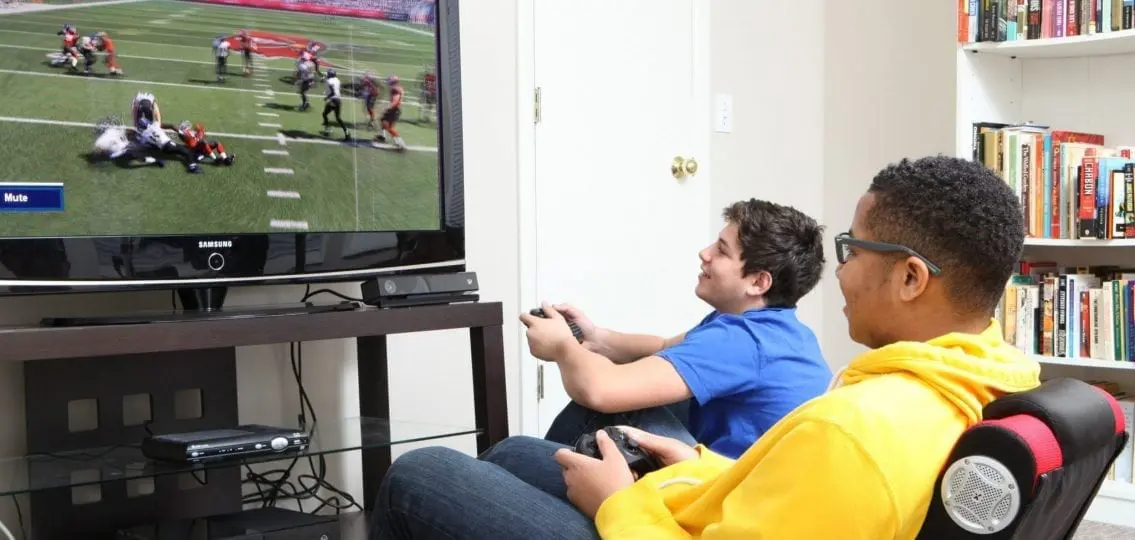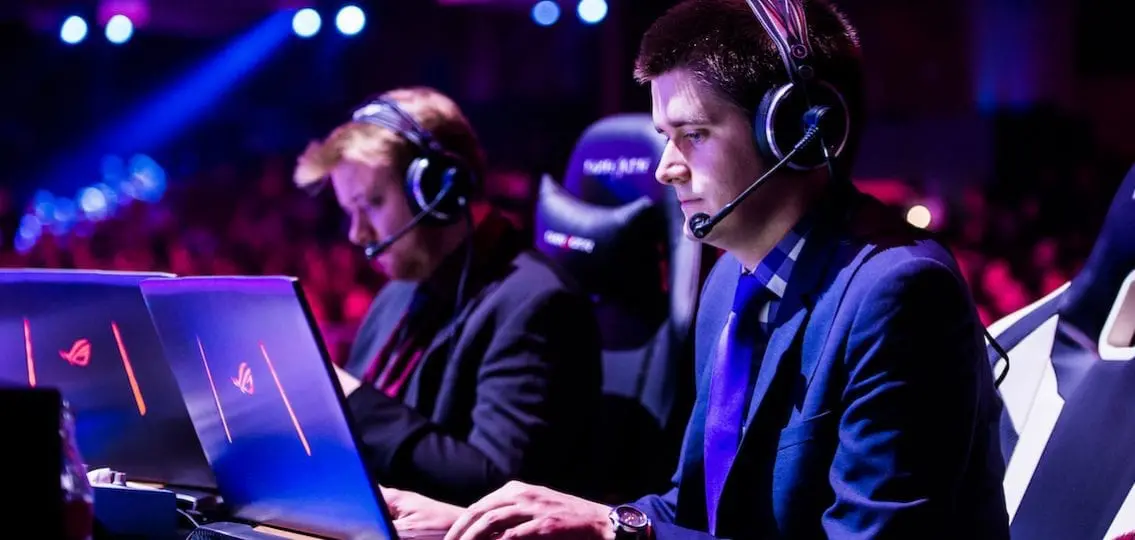The next time your kid tells you they want to be a professional gamer, the joke may be on you. Well, kind of.

Electronic gaming is big business and electronic sports (esports) teams and scholarships are being created at colleges and universities across the country. According to the National Association of Collegiate Esports (NACE), more than 100 American universities have competitive esports teams, a number that’s expected to continue to grow.
But What Exactly is Esports?
A quick internet search for esports will garner a slew of articles, most of them covering who’s playing, what games are leading, and more importantly, how profitable the egaming industry is becoming. None of the news articles cover what esports is, which can be confusing to those outside of the gaming world, and especially tricky for parents of up-and-coming gamers
The most straightforward explanation is that esports is the intersection between gaming and sports. And much like any organized sports program, esports organizes multiplayer gaming events, pitting players against one another, in matches of strategy and skill.
Your teen’s gaming abilities could not only help pay for their college education, it could launch their professional career.
Matthew Benson is the CEO of eFuse, a startup company that gamers, and parents of gamers, will find helpful in navigating the world of esports. Launching in March 2019, the primary focus of eFuse will be connecting gamers with opportunities at each stage of their gaming career, from amateur (high school) to post-collegiate professional life.
“It’s important for parents to know that gaming is not necessarily a waste of time,” says Benson. “You have to find a healthy balance, of course, but there are a lot of skills that can be learned, and a lot of opportunities to be had, simply by playing video games and being dedicated to that craft.”
As a parent, the most important thing to understand is that your gaming teen has a world of opportunity opening for them if they stick with it. That’s not to say that they’ll end up being a professional player—Benson says that only 1-2 percent of gamers make it to that level—but the gaming industry’s unprecedented growth is creating career opportunities in every area of the business.
Game publishers, as well as other areas in the gaming industry, are looking to hire people with traditional skill sets, such as marketing or financial analysis, who also have a passion and a background in gaming. This means that your teenager can pursue a traditional course of study in college and parlay it into a professional job in the gaming industry—the best of both worlds for gaming enthusiasts.
Collegiate coaches are actively working to provide a competitive experience that will also prepare students for their professional life. Glenn Platt, Miami University of Ohio professor and esports coach, explained the concept of scholar gamers in an article for NYU’s student newspaper: “There is a whole world of roles that aren’t just playing esports, but being actively involved in the business of esports.”
Where Can Teens Find Opportunities?
Teens who are serious about their future in gaming can find out more about college esports opportunities from the National Association of Collegiate Esports. NACE lists schools offering collegiate esports teams and scholarships and students can create a profile on the site for recruitment opportunities.

Launched in January, 2020, eFuse provides a one-stop platform for players at all stages in their egaming career. In discussing the growth of collegiate esports, Benson noted that 85 schools offered scholarships for esports in 2017. The number grew to 120 in 2018, with a projected estimate of 150-160 for 2019. Benson says those statistics speak to the growth happening at all levels of esports, especially at the high school and college level. One thing is for sure: egaming isn’t going away and the potential career options are only increasing.



